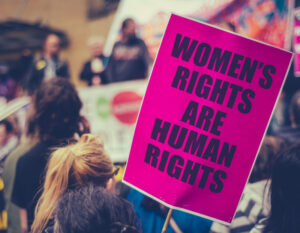
One year ago on October 5, the New York Times and the New Yorker published an investigation into movie producer Harvey Weinstein, revealing how he had paid off his sexual harassment accusers for decades. That investigation launched the #MeToo movement, a powerful social media campaign to raise awareness about sexual assault and violence. Since then, women from every walk of life have shared their personal stories. Some very powerful men have lost their jobs and positions of power because of the accusations of inappropriate sexual conduct and the legal investigations that have resulted from this movement.
The Accused
In all, more than 250 men–celebrities, politicians, business executives, performers, and others–have been accused of sexual harassment since the #MeToo movement began a year ago. Some well-known cases involve actor Kevin Spacey and comedian Louis C.K. Media personalities who have also been accused include Bill O’Reilly, Alex Jones, and Matt Lauer. Accussed politicians and other government officials from both political parties include John Conyers, Al Franken, and Brett Kavanaugh.
Women Speak Out

Across the country, the #MeToo movement has given many women courage to come forward with their own stories of sexual assault. Since the #MeToo movement began a year ago, the National Sexual Assault Hotline has seen a 30 percent increase in calls. Last Friday–the day after Brett Kavanaugh and Dr. Christine Blasey Ford testified before the Senate–was the busiest day in the Hotline’s history.
Meanwhile, the Time’s Up Legal Defense Fund (created in January 2018) reports that more than 3,500 people already have contacted them for help with sexual harassment suits. The fund has also received $22 million in donations since its inception less than a year ago. The Equal Opportunity Commission has also seen its Web traffic increase by 30 percent since the #MeToo movement began last year.
What Has Really Changed?
Critics are quick to point out that the only celebrity so far who is actually going to serve any jail time for his actions is Bill Cosby, and technically his case predates the #MeToo movement. Other high profile individuals have lost their jobs and retreated out of public view. They have not been directly taken to court for legal or civil punishment.
Laws have been passed in California and New York to require company-wide harassment training. Yet only one out of every three executives claims to have changed their workplace behavior in response to the #MeToo movement. At the same time, more than a third of Americans believe that their work environment still fosters sexual harassment.
It is important to remember that the #MeToo movement is only a year old. In the past year, the United States has experienced a dramatic change in the social conversation about sexual harassment and violence. Only time will tell if this new spotlight of awareness can result in cultural and legal changes.
